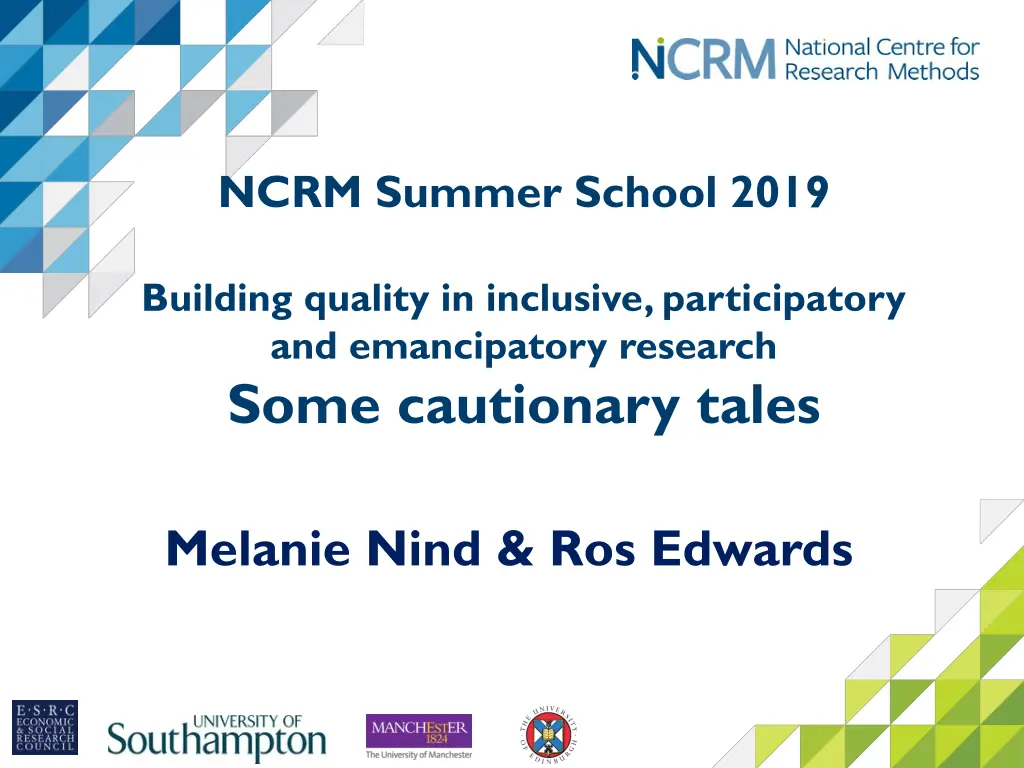
Building Quality in Inclusive Research: Cautionary Tales and Ways Forward
Explore cautionary tales and insights on building quality in inclusive, participatory, and emancipatory research, accompanied by valuable lessons and reflections. Discover the importance of user involvement, challenging hierarchies, and working with peer/community researchers for impactful research outcomes.
Download Presentation

Please find below an Image/Link to download the presentation.
The content on the website is provided AS IS for your information and personal use only. It may not be sold, licensed, or shared on other websites without obtaining consent from the author. If you encounter any issues during the download, it is possible that the publisher has removed the file from their server.
You are allowed to download the files provided on this website for personal or commercial use, subject to the condition that they are used lawfully. All files are the property of their respective owners.
The content on the website is provided AS IS for your information and personal use only. It may not be sold, licensed, or shared on other websites without obtaining consent from the author.
E N D
Presentation Transcript
NCRM Summer School 2019 Building quality in inclusive, participatory and emancipatory research Some cautionary tales Melanie Nind & Ros Edwards
A lesson from Mabel Cooper There are different ways to know a thing
A cautionary tale from the funding world Up until the time when the LDRI studies were commissioned, the Department of Health had adopted four broad criteria to judge the suitability and standards of research proposals: scientific rigour, fit with research brief, policy relevance and value for money. To this, therefore, a fifth was added: user involvement.
A cautionary tale from experience There is so much to get wrong There is so much passion There is politics all around
A cautionary tale about hierarchies We can challenge hierarchies in research And replace them by new hierarchies
Researching with peer/community researchers new? PATRICK GEDDES 1854-1932 Marginalised should be involved in studying their own communities Community self-survey movement
COMMUNITY? Vignette 1 stigmatising within a community Vignette 2 community suspicions and internal divisions
GETTING BETTER DATA? Vignette 3 lack of trust between peer researcher and academic researcher Vignette 4 discomfort in asking questions and probing
Steps in working with peer researchers Employing peer researchers as research assistants Arranging for the work to be accredited Pre-project briefing and training Ongoing mentoring Involvement in analysis and writing up Final debriefing
